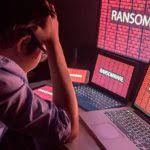Ohio National Guard Cyber Reserve Concludes Investigation into Columbus Ransomware Attack.
Recent events in Columbus, Ohio, serve as a stark reminder of the importance of preparedness and rapid response to Ransomware attack challenges. On this front, the Ohio National Guard’s Cyber Reserve Unit has concluded its investigation into a significant ransomware attack that impacted the city, shedding light on how state-level resources are mobilized to counter cyber threats and bolster defenses.
Background: The Ransomware Attack
Ransomware attacks have become increasingly common in recent years, affecting municipalities, healthcare systems, and businesses alike. The city of Columbus fell victim to such an attack, which compromised sensitive information and disrupted essential services. This breach not only posed immediate threats to the city’s operations but also left citizens concerned about their privacy and the potential long-term implications of such a violation.
The Role of the Ohio National Guard Cyber Reserve
In response to the attack, the Ohio National Guard activated its Cyber Reserve Unit an elite team dedicated to addressing cyber incidents and threats. This unit is composed of members with extensive experience in cybersecurity, IT, and military operations, who work collaboratively to assess and respond to breaches.
The Cyber Reserve’s mission goes beyond immediate threat mitigation; it encompasses a comprehensive evaluation of the attack’s methods, the extent of the damage, and the implementation of measures to prevent future incidents. Following the ransomware attack on Columbus, the unit engaged in an exhaustive investigation to understand the attack’s origins, the vulnerabilities exploited, and the information compromised.
Findings and Recommendations
Having concluded their investigation, the Ohio National Guard Cyber Reserve has released preliminary findings. While details are still emerging, initial reports suggest that the attack exploited known vulnerabilities within the city’s IT systems. Additionally, the incident highlighted gaps in existing cybersecurity protocols and the need for ongoing training and awareness within city departments.
Central to the findings was the assertion that many public sector organizations may not be adequately prepared for the increasingly sophisticated nature of cyber threats. This revelation underscores the urgency for all public institutions to reassess their cybersecurity policies and invest in robust infrastructure and training programs.
Strengthening Cyber Defense in Ohio
Looking ahead, the conclusion of this investigation provides a crucial opportunity for Columbus and other cities in Ohio. By taking proactive steps to implement the recommendations of the Cyber Reserve Unit, local governments can bolster their defenses against future attacks. This may include enhancing security protocols, adopting new technologies, increasing personnel training, and fostering partnerships with private cybersecurity firms.
Moreover, the incident serves as a call to action for residents and businesses alike. Increasing awareness of cybersecurity best practices at the individual level can fortify the entire community against potential threats. Simple actions such as using strong passwords, enabling two-factor authentication, and remaining vigilant against phishing attempts can significantly reduce the risk of falling prey to cybercriminals.
Conclusion
As the digital landscape evolves, so too must our strategies for combating cyber threats. The Ohio National Guard’s Cyber Reserve has demonstrated the critical role that state resources play in addressing and investigating cyber incidents. By prioritizing cybersecurity and fostering a culture of awareness and preparedness, Ohio can emerge stronger and more resilient in the face of such challenges.
The recent ransomware attack on Columbus may have been a setback, but with diligent investigation, actionable recommendations, and a commitment to continuous improvement, the state’s response can serve as a model for others facing similar threats. As we move forward, collaboration among government, industry, and citizens will be vital to securing our digital future.








